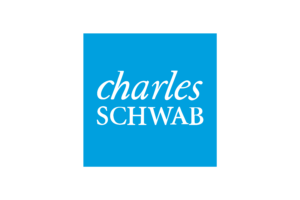
TL;DR: Converting a 401(k) to a Roth IRA can provide Maryland residents with long-term tax-free growth, but it comes with up-front tax implications—especially in a high-tax state like Maryland. Strategic planning around timing, partial conversions, and tax brackets is key. Always consult a tax advisor to tailor the move to your financial goals and state-specific rules.
Why Convert?
- Tax-Free Growth: Future withdrawals—including earnings—are tax-free.
- No RMDs: Roth IRAs don’t require distributions during your lifetime.
- Estate Planning: Great for tax-efficient wealth transfer.
- Long-Term Tax Savings: Pay taxes now to potentially reduce your lifetime tax burden.
If you’re like many Marylanders planning for a more secure and tax-efficient retirement, you’ve probably heard about converting your 401k to a Roth IRA.
The idea of a 401k to Roth IRA conversion is appealing for a simple reason: future tax-free income. But while the strategy is powerful, it’s not simple. This is especially true in a state like Maryland, where state income tax adds an extra layer to the decision-making process.
Let’s take a closer look at how Maryland residents can make the most of a conversion of their 401k to Roth IRA.
The Basics of a 401k to Roth IRA Conversion
Simply put, a conversion from 401k to Roth IRA means you’re moving retirement funds from a tax-deferred account into an after-tax account. When you do this, you’re essentially choosing to pay taxes on your contributions and earnings now, in exchange for tax-free withdrawals in retirement.
This move can be especially attractive if you expect to be in a higher tax bracket later in life, or if you want more flexibility with retirement distributions. However, it does trigger a taxable event in the year you convert. For this reason, it’s important to keep timing in mind.
Benefits of a 401k Conversion to Roth IRA
There are a few reasons why you might consider a traditional 401k to Roth IRA conversion in your future. These include:
Tax-Free Growth and Withdrawals
That’s right, your investments grow tax-free.
Qualified withdrawals are 100% tax-free, including the earnings. For Maryland residents facing long retirement horizons, this can mean thousands in savings over time.
No Required Minimum Distributions (RMDs)
Unlike traditional 401k plans, Roth IRAs do not require minimum distributions during your lifetime.
What does that mean for you? Your money can stay invested longer, continue compounding tax-free, and give you greater control over your taxable income in retirement. This flexibility is a major advantage when planning for your golden years.
Potential Long-Term Tax Savings
By choosing to pay taxes now (especially in a lower-income year) you could reduce your lifetime tax burden. This is particularly smart if:
- You’re temporarily in a lower tax bracket (e.g., in between jobs, early retirement)
- You expect tax rates to rise in the future
- You want to hedge against future tax law changes
Estate Planning Advantages
Roth IRAs are also powerful tools for wealth transfer. Since they’re not subject to RMDs, they allow your money to grow tax-free for longer.
Beneficiaries who inherit a Roth IRA can also withdraw funds tax-free (under certain conditions), making this a useful estate planning strategy.

Tips for Converting Your 401k to a Roth IRA
Successfully executing a 401k to Roth IRA conversion in Maryland requires more than just filling out a form. Follow these steps to help maximize your tax gains and avoid costly penalties:
1. Evaluate Your Current 401k Plan
Start by reviewing your current 401k plan documents or contacting your plan administrator.
Some 401k plans only allow rollovers once you leave your job, while others permit in-service distributions, which let you convert while still employed. Maryland employees working in state or federal government positions may also have TSPs or 457(b) plans, which follow different rules.
2. Estimate Your Tax Liability
When you convert pre-tax 401k dollars into a Roth IRA, the amount you convert is added to your taxable income in that year. This can push you into a higher federal or Maryland tax bracket if you’re not careful.
Don’t forget: Maryland taxes retirement income differently from federal tax law. While some distributions may be deductible under Maryland’s Pension Exclusion, Roth conversions are usually fully taxable at the state level.
3. Decide on a Full vs. Partial Conversion
You’re not required to convert your entire 401k balance all at once. Partialconversions can be much more tax-efficient in some cases.
Partial Conversion Benefits:
- Stay in a lower tax bracket.
- Avoid a big one-time tax hit.
- Reduce potential impact on Medicare premiums or ACA subsidies.
4. Choose the Right Time for the Conversion
Timing is everything.
The goal is to convert in low-income years or before a big life event that might increase your taxable income.
Ideal Timing Windows:
- Early retirement years, before Required Minimum Distributions (RMDs) begin.
- Gap years between jobs.
- Years with large itemized deductions (e.g., from charitable giving or medical expenses).
5. Open a Roth IRA Account (If You Don’t Have One)
To receive your converted funds, you’ll need a Roth IRA account open and ready. Most brokerage firms have made this process simple online.
6. Initiate the Transfer or Rollover
Once you’ve planned your tax strategy and opened the Roth IRA, it’s time to execute the conversion. The best option is typically a direct rollover:
- Your 401k provider sends the funds directly to your Roth IRA custodian.
- No risk of early withdrawal penalties.
- Cleaner process for tax reporting.
Be sure to set aside enough cash to cover your state and local tax liability.
Make Your 401k to Roth IRA Conversion Count
Converting your 401k to a Roth IRA can be one of the most powerful moves for your retirement.
We’ve walked through the essential steps: evaluating your current plan, estimating tax liabilities, deciding on a full or partial conversion, and considering the right time to act. But don’t overlook the fine print, like the 401k to Roth IRA conversion limits. This may affect how much you can strategically convert each year without triggering unnecessary tax burdens or losing access to certain credits or benefits.
With so many nuances, the best results often come from working with a qualified tax or financial advisor who understands both the complexities of Roth conversions and the intricacies of Maryland’s tax laws.
Planning a 401k to Roth IRA conversion? Get expert help with your investment strategy.
EIA Income Advisors, Inc. is a registered investment adviser and only conducts business in jurisdictions where it is properly registered, or is excluded or exempted from registration requirements. Registration is not an endorsement of the firm by securities regulators and does not mean the adviser has achieved a specific level of skill or ability. The firm is not engaged in the practice of law or accounting.
We reserve the right to edit blog entries and delete comments that contain offensive or inappropriate language. Comments that potentially violate securities laws and regulations will also be deleted.
The information presented is believed to be factual and up-to-date, but we do not guarantee its accuracy and it should not be regarded as a complete analysis of any topics discussed. All expressions of opinion reflect the judgment of the authors on the date of the post and are subject to change. A professional adviser should be consulted before making any investment decisions. Content should not be viewed as personalized investment advice or as an offer to buy or sell any of the securities discussed.
All investments and strategies have the potential for profit or loss. Different types of investments involve higher and lower levels of risk. There is no guarantee that a specific investment or strategy will be suitable or profitable for an investor’s portfolio. There are no assurances that an investor’s portfolio will match or exceed a specific benchmark.
Historical performance returns for investment indexes and/or categories usually do not deduct transaction and/or custodial charges, or advisory fees, which would decrease historical performance results.
Hyperlinks on this blog are provided as a convenience. We cannot be held responsible for information, services, or products found on websites linked to our posts.
Annuity and life insurance guarantees are subject to the claims-paying ability of the issuing insurance company. If you withdraw money from or surrender your contract within a certain time after investing, the insurance company may assess a surrender charge. Withdrawals may be subject to tax penalties and income taxes. Persons selling annuities and other insurance products receive compensation for these transactions. These commissions are separate and distinct from fees charged for advisory services. Insurance products also contain additional fees and expenses.
Social Security rules and regulations are subject to change at any time. Always consult with your local Social Security office before acting upon any information provided herein.
Tax and legal information contained in this publication is general in nature and should not be relied upon as tax or legal advice. Always consult an attorney or tax professional regarding your specific legal or tax situation. Tax and pension rules are subject to change at any time.





